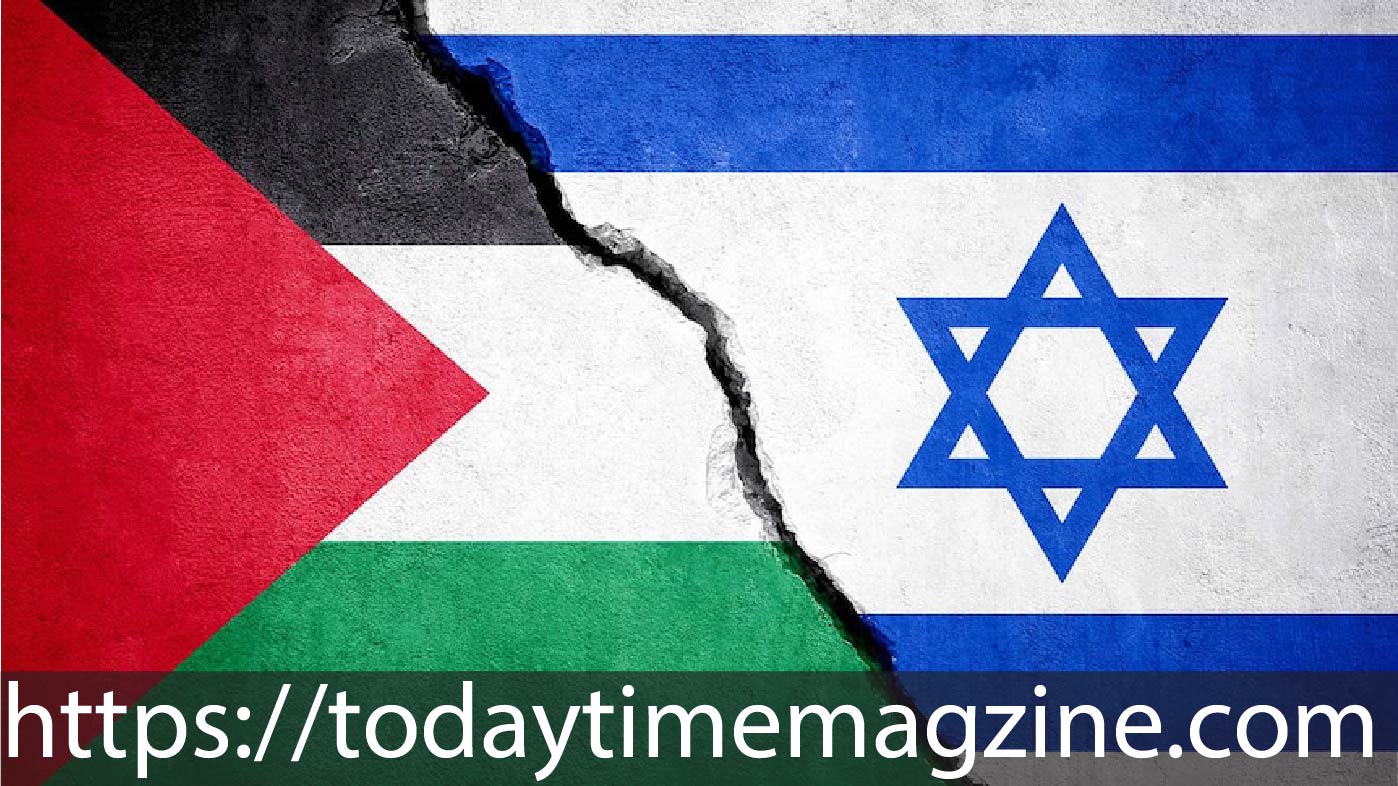
7 Human Rights: Concerns and Allegations between Palestine on Israel
Introduction: The Significance of Human Rights in the Palestine on Israel Conflict
The Palestine on Israel conflict, spanning decades, has been marred by allegations of human rights violations from both sides. Understanding these concerns is crucial for grasping the depth and complexity of the conflict.
Historical Background: Root Causes of Human Rights Concerns
The historical backdrop of the Palestine on Israel conflict is intricate. Both Israelis and Palestinians have faced significant human rights challenges, rooted in territorial disputes, political ambitions, and religious tensions. Palestine on Israel
Occupation and Land Disputes: Impacts on Palestinian Rights
The ongoing Israeli occupation of Palestinian territories, particularly the West Bank and East Jerusalem, has raised numerous human rights concerns. Restrictions on movement, land seizures, and the establishment of Israeli settlements have significantly impacted Palestinian lives.
Military Operations: Allegations of War Crimes and Excessive Force
Over the years, several military operations in Gaza and the West Bank have led to allegations of war crimes. Concerns about disproportionate use of force, civilian casualties, and targeting of infrastructure have been raised by international human rights organizations. Palestine on Israel
Gaza Strip: Humanitarian Crisis and Blockade Concerns
The blockade of the Gaza Strip, in place since 2007, has resulted in severe humanitarian consequences. Restrictions on imports, exports, and movement have exacerbated poverty, unemployment, and food insecurity, leading to widespread human rights concerns. Palestine on Israel
Settlements and Displacement: Violations of International Law
The expansion of Israeli settlements in the West Bank and East Jerusalem has been a contentious issue. These settlements, considered illegal under international law, have resulted in forced evictions, demolitions, and displacement of Palestinian communities, further exacerbating human rights challenges.
Prisoners and Detainees: Treatment and Legal Concerns
The detention of Palestinians, including minors, by Israeli authorities has raised significant human rights concerns. Allegations of torture, ill-treatment, and administrative detention without trial have been highlighted by human rights organizations, calling for adherence to international legal standards.
Global Response: International Community’s Stance on Human Rights
The international community, through various resolutions and statements, has consistently emphasized the importance of respecting human rights in the Israel-Palestine conflict. Calls for accountability, justice, and adherence to international law have been central to global responses. Palestine on Israel
Efforts and Initiatives: Movements Towards Justice and Accountability
Numerous initiatives, both grassroots and institutional, aim to address human rights concerns in the Israel-Palestine context. Civil society organizations, human rights activists, and international bodies continue to advocate for justice, accountability, and a peaceful resolution to the conflict.
Conclusion: The Imperative of Addressing Human Rights for Peace
Addressing human rights concerns is not only a moral imperative but also a prerequisite for lasting peace in the Israel-Palestine context. Recognizing the rights and dignity of all individuals, irrespective of their nationality or ethnicity, is fundamental to building a future based on mutual respect, understanding, and coexistence. Palestine on Israel
The journey toward peace and reconciliation is fraught with challenges, but by prioritizing human rights, justice, and accountability, there is hope for a future where Israelis and Palestinians can live side by side in peace and prosperity. Palestine on Israel
Economic Ramifications: Human Rights and Socio-Economic Challenges
Beyond the immediate physical and political implications of the Israel-Palestine conflict, there lies a deeper socio-economic dimension intertwined with human rights concerns. The economic disparities between Israel and the Palestinian territories, exacerbated by policies and practices, have profound human rights implications. Palestine on Israel
Economic Disparities: The Divide Between Israel and Palestine
Israel, with its robust economy, technological advancements, and global trade relations, stands in stark contrast to the Palestinian territories, which grapple with high unemployment rates, limited access to resources, and restricted trade. The economic disparities are not merely a result of the conflict but are perpetuated by policies that hinder Palestinian development and growth. Palestine on Israel
Blockades, Checkpoints, and Economic Strangulation
The imposition of blockades, checkpoints, and restrictive measures severely limits the Palestinian economy’s potential. Businesses face challenges in importing raw materials, exporting finished goods, and accessing regional markets. The resulting economic stagnation leads to widespread poverty, reduced opportunities, and a heightened dependence on international aid. Palestine on Israel
Human Rights and Labor Exploitation
Within the Palestinian territories, the lack of economic opportunities often forces individuals into precarious labor conditions. Workers, both within the territories and those employed in Israeli settlements, frequently face exploitative practices, including low wages, long hours, and unsafe working conditions. Such practices violate fundamental human rights principles, including the right to fair wages, safe working environments, and freedom from exploitation. Palestine on Israel

Child Labor and Education Challenges
One of the most distressing human rights concerns is the prevalence of child labor in the Palestinian territories. Economic hardships, exacerbated by the conflict and restrictive policies, compel children to work in hazardous conditions, depriving them of their right to education, play, and a dignified childhood. The long-term implications of such practices on the socio-economic fabric of Palestinian society are profound, with potential repercussions on future generations’ well-being and development.
International Aid and Dependency
The Palestinian territories’ economic challenges have led to increased dependency on international aid. While humanitarian assistance is crucial for alleviating immediate suffering, long-term solutions necessitate addressing the root causes of economic stagnation and human rights violations. Sustainable development, inclusive growth, and equitable policies are essential for breaking the cycle of dependency and fostering self-reliance. Palestine on Israel
Civil Society Initiatives: Fostering Economic Resilience and Empowerment
Despite the myriad challenges, civil society organizations, both within Palestine and internationally, are working tirelessly to promote economic resilience, empowerment, and human rights. Initiatives focusing on vocational training, entrepreneurship, women’s empowerment, and community-led development are paving the way for a more inclusive and sustainable economic future. Palestine on Israel
Conclusion: Integrating Human Rights into Economic Policies
Addressing the economic dimensions of the Israel-Palestine conflict requires a holistic approach that integrates human rights principles into economic policies and practices. Recognizing the inherent dignity and rights of every individual, irrespective of their socio-economic status, is fundamental to building a more just, equitable, and prosperous future for all. Palestine on Israel
By fostering dialogue, collaboration, and mutual respect, there is hope for transcending the confines of the conflict and forging a path toward economic development, human rights realization, and lasting peace in the region. Palestine on Israel
Building Bridges: The Role of International Collaboration
International collaboration and diplomatic efforts play a pivotal role in addressing the complex interplay between human rights and economic challenges in the Israel-Palestine context. Engaging in meaningful dialogue, fostering trust, and promoting mutual understanding are essential steps toward forging a path of coexistence, prosperity, and peace for future generations. Palestine on Israel
The Role of Media, Education, and Civil Society in Shaping Narratives and Building Peace
In the multifaceted landscape of the Israel-Palestine conflict, the role of media, education, and civil society cannot be overstated. These institutions wield significant influence in shaping perceptions, fostering understanding, and laying the groundwork for peaceful coexistence.
Table of Contents
Media’s Influence: Framing Narratives and Perception
Media outlets, both domestic and international, play a crucial role in framing narratives related to the Israel-Palestine conflict. The portrayal of events, the language used, and the perspectives highlighted can either exacerbate divisions or promote understanding.
Historically, media coverage of the conflict has often been polarized, reflecting the broader geopolitical dynamics at play. However, there is a growing recognition of the need for balanced, nuanced reporting that acknowledges the complexities, humanizes all parties involved, and seeks to bridge divides rather than deepen them.
Alternative media platforms, grassroots journalism, and citizen-led initiatives are emerging as powerful tools for sharing personal stories, amplifying marginalized voices, and challenging mainstream narratives. By promoting dialogue, highlighting shared histories, and fostering empathy, these platforms contribute to a more nuanced understanding of the conflict.
Education as a Catalyst for Change
Education plays a pivotal role in shaping attitudes, beliefs, and values from a young age. In the context of the Israel-Palestine conflict, the curriculum, textbooks, and educational practices in both Israeli and Palestinian schools have been subjects of scrutiny and debate.
There is a growing movement advocating for educational reforms that promote peace education, critical thinking, and intercultural understanding. Initiatives that foster dialogue between Israeli and Palestinian students, promote shared learning experiences, and encourage mutual respect are gaining traction.
Moreover, civil society organizations, international bodies, and educational institutions are collaborating to develop curricula, teaching materials, and programs that challenge stereotypes, debunk myths, and promote a more nuanced understanding of the conflict.
Civil Society’s Role: Bridging Divides and Fostering Collaboration
Civil society plays an indispensable role in promoting peace, reconciliation, and human rights in the Israel-Palestine context. Grassroots organizations, community initiatives, and advocacy groups are at the forefront of efforts to build bridges, foster dialogue, and promote mutual understanding.
From peace-building workshops and interfaith dialogues to cultural exchanges and collaborative projects, civil society initiatives offer tangible pathways for Israelis and Palestinians to interact, engage, and collaborate. These initiatives not only challenge existing paradigms but also create spaces for shared experiences, collective healing, and transformative change.
Furthermore, international solidarity movements, human rights organizations, and solidarity networks amplify the voices of marginalized communities, advocate for justice, and mobilize global support for a just and peaceful resolution to the conflict.
Conclusion: Towards a Future of Peace, Coexistence, and Human Rights
The Israel-Palestine conflict is characterized by its complexity, deep-rooted historical grievances, and multifaceted dimensions. However, amidst the challenges lie opportunities for transformative change, reconciliation, and a future grounded in justice, dignity, and mutual respect.
By harnessing the power of media to promote balanced narratives, leveraging education as a catalyst for peace-building, and empowering civil society to bridge divides and foster collaboration, there is hope for a brighter future for all inhabitants of the region.
The journey towards peace, coexistence, and human rights is fraught with challenges, but with unwavering commitment, collective action, and a shared vision for a better future, Israelis and Palestinians can transcend the confines of the past and forge a path towards a more inclusive, equitable, and peaceful tomorrow.



